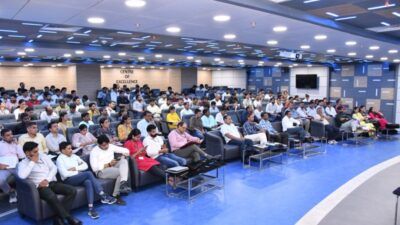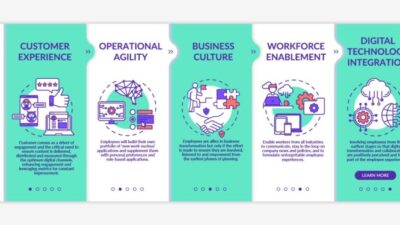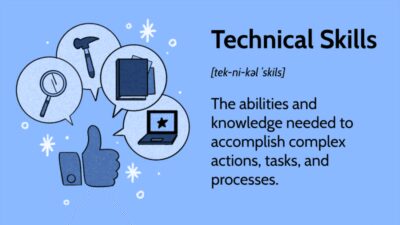Technology Adoption In Construction Industry – The age of AI is on us, with nearly every industry placing his bet on a more prosperous future powered by artificial intelligence.
For those excited about AI’s potential, the construction industry provides a major opportunity. Many of these challenges hindering the sector’s growth – such as worker shortage, low-profit margins, complex project management, and ethical AI applications.
Technology Adoption In Construction Industry

In recent years, digital technologies have been played a three-role in transformation the architecture, engineering, and construction (AEC) industry. The rapid shift of paper-based and analog processes to digital tools dramatically increased productivity and efficiency.
Building Information Modelling: Transform Nigeria’s Construction
Colulat platforms, document markup tools, and digital schedule technologies as BIM (Building Information Modeling) have enabled countryers, owners, owners, and regulators to work together more seamless.
The tools have helped reduce errors, minimize rework, and prevent costs – all of which have traditionally eaten in construction project profitability.
However, for the construction industry to fully capitalize on AI’s potential, because it has with digital collaboration technologies, it will need to undergo both structural and cultural transformers.
One of the biggest areas that will need to evolve is talent cultivation. Historically, the construction industry is something incusse about talent development. Most of the professionals in the field – traders, contractors, architects, and engineers – have wholesed their skills by depth, specialized knowledge in their respective areas.
Shadow Ventures Discusses New Report On Technology In The Construction Industry
Because of this, many construction projects are managed by an array of special contractors, each responsible for specific aspects of the build. As digital technology has finished the industry, many of the professionals have bigegrated incorporated new tools in their workfuls, viewing them as necessary, but not central to their traditional skills.
As a result, “construction” and “technology” still feel something apart in the gift pool of the industry. On one side are the tech professionals – software developers, hardware engineers, and AI specialists – while the other are the traditional construction workers – Traders, architects and engineers, architects and engineers, architects and engineers, architects and engineers.
During a recent panel discussion at METS’s Media Lab on AII applications in architecture and construction, I asked the audience as many are experts in both AI and construction. Not a single hand has risen.

While architects have embraced tools like HAMI software and builders have accepted BIM, the age of AI will require a more integrated approach. The construction industry will need professionals who are well-versed in both
Pdf) Artificial Intelligence (ai)-based Technology Adoption In The Construction Industry: A Cross National Perspective Using The Technology Acceptance Model
AI and construction – what I call “dual athletes.” The people need to be able to speak so comfortably about big language models and predicted analytics as they do about mass-bearing walls and concrete.
Construction management and engineering departments at academic institutions must integrate AI tools in their training, so that students learn how these technologies improve traditional construction concepts and workceps and workceps.
At the same time, professionals already working in the industry need to adopt a mindset of lifelong study. As technology continues to evolve, it will be critical for them to stay current with the final advancements. Only by doing so they can meet the demands of the future of the industry, rather than clinging to outdated methods.
Over my career in innovation and technology, I’ve seen dual athletes make a transformative impact in other industries, such as manufacturing and oil and oil and AI have driven significant productivity gains. Companies in the sectors have invested heavily in developing talent with expertise in both industry trade skills and data analytics.
Breaking Ground: The Slow Adoption Of New Technology In The Construction Industry
The mindset has brought Tejjy Inc, a Women minority Business Enterprise (MBE / DBE / WBE) on the GSA design and a women-owned Small Business (WHAB), to embrace a forward-thinking
As a leading architectural engineering design solution provider, we adapt BIM and VDC (virtual design and construction) technology to ensure premium quality designs. With over 17 year experience, we have built lasting relationships with clients by delivering customer-centric services with 100% satisfaction and quality assurance.
Beyond gift development, the construction industry will also need to foster new forms of collaboration. Historically, construction technology is often developed in isolation, with tech companies creating tools that workers adapted only when they see fit. At the age of AI, the singing approach must end.

Construction professionals and technology developers should work together from the ground up. Instead of only observant tech developments of the sidelines, industry workers must actively participate in shaping the tools, they will use. This collaboration will ensure that technology solutions are truly tailored to the requirements of the construction workforce.
Tackling The Top 10 Construction Industry Issues
The rise of AI in construction is exciting, but it also provides new risks. If the industry fails to approach AI children thoughtfully, the consequences could be severe. AI’s potential must be harnessed in a way that is both safe and ethical while driving, driving productivity and profitability.
To unlock AI’s full promise in construction, the industry must fester a new kind of gift ecosystem – one where AI-construction dual athletes lead the road. Close collaboration between technology developers and construction professionals will be the foundation of future progress. By adopting the strategies, the construction industry can ensure that AI will research and success for years to come.
A professional content writer. Having years of experience in this field. Write is my passion and I love to play with words confidently. # Artificial intelligence #pigital transformation #the pracster recovery # Hybrid & Remote Work # Internet of items
A new global survey reveals that over 70% of construction companies have been facing challenges in implementing new technologies, indicating a significant slowdown in digitalization in the industry. In addition, an overwhelming 97% of construction professionals from around the Globe forecast an increase in digital investment in the next three years, particularly in construction project management software.
Dramatic Rise In Construction Ai Adoption
The report, led by planbradar, a leading company in digital construction, real estate, and facilities management technology, collected views of over 1, 300 construction professionals Spanited to Sponge 15 countries. The countries including prominent players in the industry such as the United Kingdom, Australia, Austrine, France, Germany, and Spain among others. The purpose of the survey was to assess the current state of digitalization in construction and real estate sectors while projecting its development in the next three years.
One of the main revelation of the report was 97% of participants found adopt new technologies challenging, although only 28% of the Cynd companies servedy reported relative easially solutions. The findings provide insight into the sender in the industry to transition into the digital age, with many companies still rooted in traditional attitudes and methods.
A significant part of the industry seems resistant to integrating technologies such as 3D printing, robotical intelligence, as indicated by their children, 18%, and 26% respectively. The investment is observed in energy efficiency and renewable energy technologies, which are favored by 26% of the industry. The report highlights a sector at a crossroads between root kovensials and hold on the conventional routes.

Despite the last technologiations evolution, the construction sector seems to have a long journey ahead in terms of digitalization. The data suggests a slow shift to integrating digital technologies, with two-thirds of professionals reporting any recent increase in hiring for digital roles in their organizations.
The Impact Of Bess Advancements On The Construction Industry
The survey has provided a clear view of investment trends in the industry. A substantial 77% of respondents predict an investment surge in construction and real estate management software in the near future. Additionally, two-thirds of the surveyed awaiting an increase in digital solutions that support environmental goals, particularly in entertainment energy sectors. Building information modeling (Beam) also elerges as a critical area for future investment.
Overcoming traditional thinking to adopt new technologies is a widespread challenge in the industry, with eight out of the fifteen serbid countries identify Implyfold perspectives as the primary drawback. In addition, fearing the return on investment (RII) when adopting new technology is pronounced in the industry, especially between companies in Australia, UK, France, Australia.
Despite the challenges, the report also reveals a generally optimistic outlook in the construction sector, with over half of the respondents awaiting an increase in their digitalization budget by at least 11%. However, this trend varies; The UK reserved with only 46% of business only which are expecting a similar level of investment increase, while countries as Australia, Hungary and Romania show an enthusiastic approach.
Leon Day, of planbradar, shared his thoughts on the findings, stating, “Empitalical construction technologies, it is excited to continue to see the coming years.”
2025 Engineering And Construction Industry Outlook
Gangage Security Launches 2026 Industry Trends Survey for Professionals relet rates USD $ 70 million to Ascend AI accounted plates in AI & DEI & DeverTrore.
Atos named MainFrame Leader in Europe through isg for fourth year Airsaransa systems Rich 30 years in aviation it invariation follut picus safety warns of
Digital technology in construction industry, technology in finance industry, construction industry technology trends, construction industry technology, new technology construction industry, information technology in construction industry, modern technology in construction industry, technology in industry, latest technology in construction industry, blockchain technology in construction industry, new technology in construction industry pdf, technology used in construction industry












